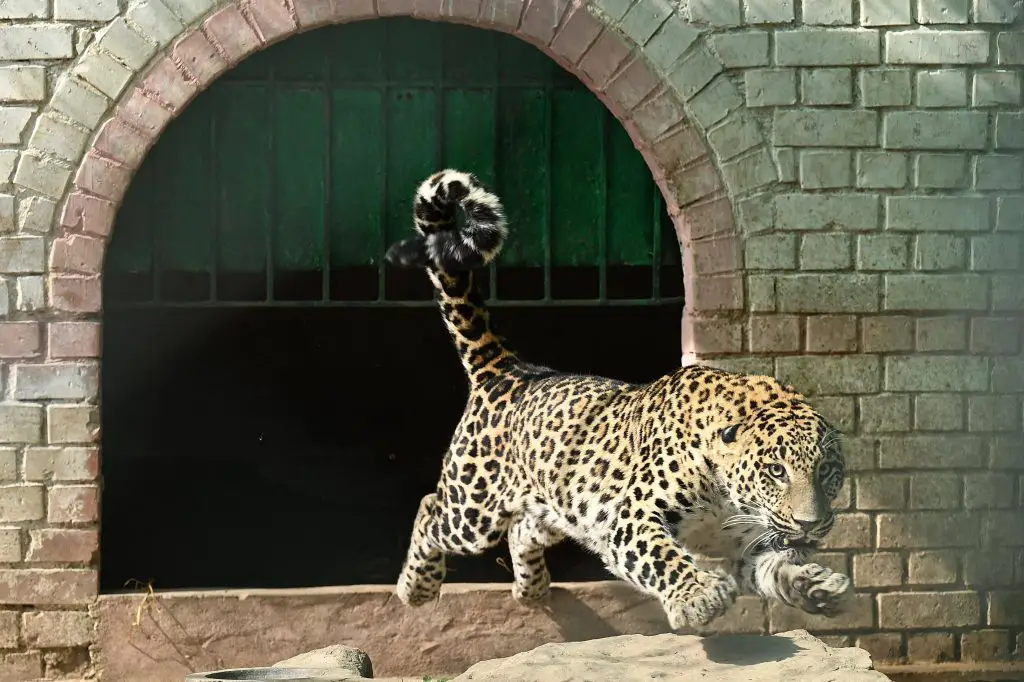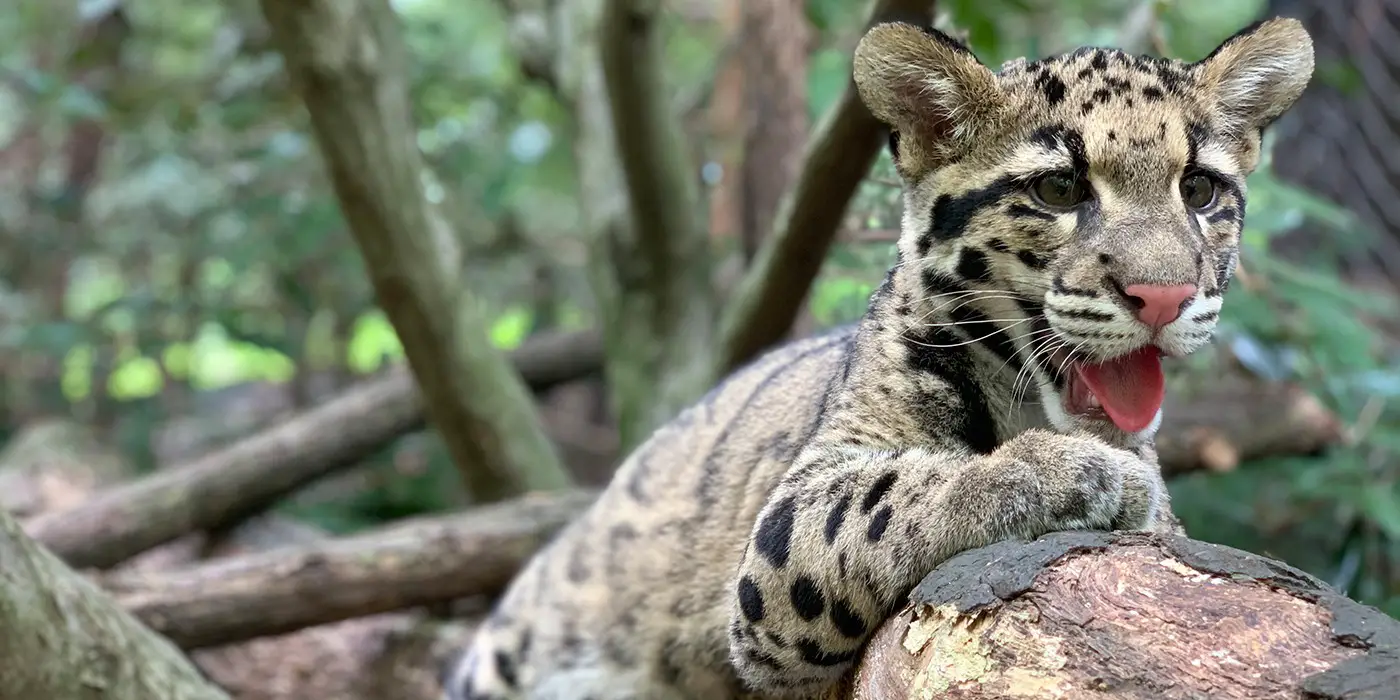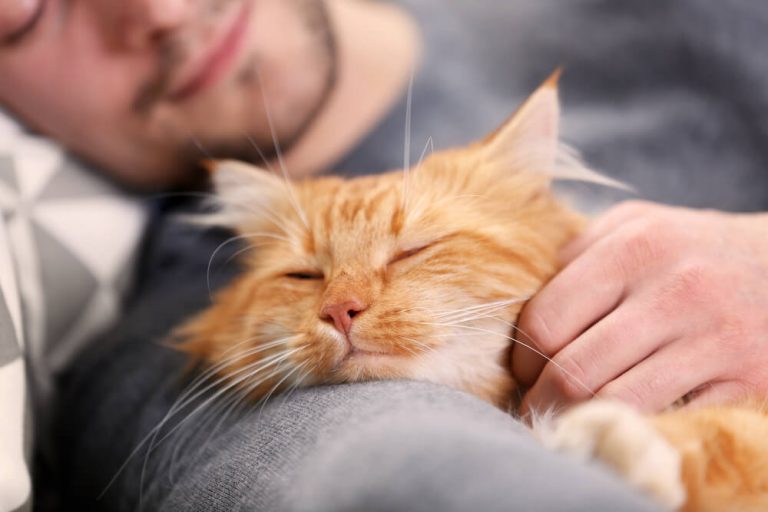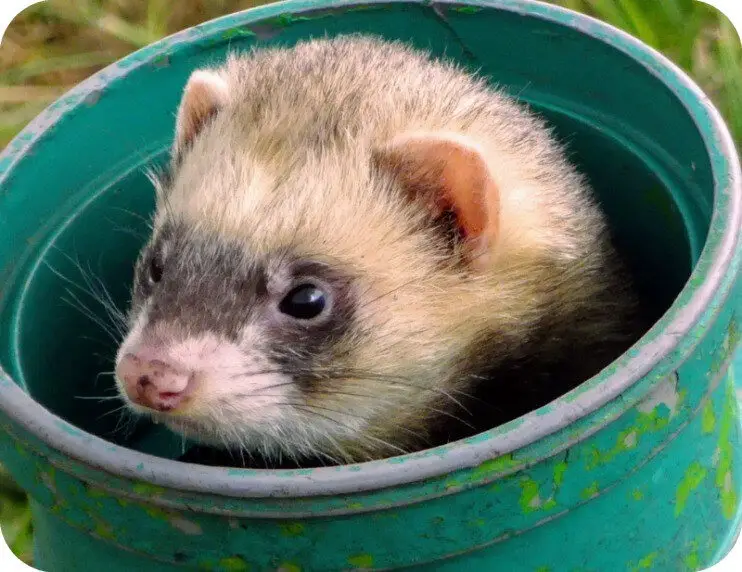Can Leopards Be Pets?
No, leopards cannot be kept as pets. Here are 12 reasons why it’s a bad idea to raise leopards.
Raising a leopard as a pet may seem intriguing, but it is highly discouraged due to various reasons. These majestic creatures are wild animals, and attempting to domesticate them is not only dangerous but also unethical. Here are 12 important things you need to know about why leopards should not be raised as pets:
1. Leopards are extremely powerful and can pose a significant threat to humans and other animals. 2. They have specific dietary and environmental needs that are difficult to replicate in a domestic setting. 3. Leopards require ample space to roam and satisfy their natural instincts. 4. They are solitary animals and may become stressed or aggressive in captivity. 5. The illegal wildlife trade contributes to the decline of leopard populations in the wild. 6. Keeping leopards as pets supports this harmful trade. 7. Leopards have specialized hunting skills that can endanger livestock and wildlife in your area. 8. They require intense socialization from an early age, which is nearly impossible to achieve in a domestic environment. 9. Leopards can transmit diseases to humans and vice versa. 10. The cost of properly caring for a leopard is exorbitant, including secure enclosures and specialized veterinary care. 11. The legality of keeping leopards as pets varies between regions, and most countries strictly prohibit it. 12. Conservation efforts focus on preserving leopard populations in the wild, not on promoting them as pets. While it may be tempting to consider owning a leopard as a pet, it’s vital to prioritize their welfare and conservation. It is best to appreciate these magnificent creatures from a distance and support organizations working towards their protection and preservation in their natural habitats.
Legal And Ethical Considerations
Leopards are beautiful and majestic creatures, but can they really be kept as pets? Before considering bringing a leopard into your home, there are important legal and ethical considerations to take into account. One of the major factors to consider is the legality of owning exotic animals. Many countries have laws and regulations in place to protect wildlife, including leopards. It is crucial to understand and abide by these laws to ensure the well-being of both the leopard and yourself as the owner. Additionally, there are ethical implications involved in keeping wild animals as pets. Wild animals have specific needs and instincts that may be difficult to meet in a domestic setting. Taking a leopard out of its natural habitat and attempting to tame it can have serious repercussions, both for the animal and for your own safety. It is essential to consider the ethical implications of keeping leopards and other wild animals as pets, and to explore alternative ways to appreciate and conserve these magnificent creatures.

Understanding Leopard Behavior
Leopards, known for their grace and agility, have captivated the imagination of many animal lovers. However, it is important to understand that leopards are wild animals and not suitable as pets. Their instinctual behaviors and natural instincts pose challenges when it comes to domestication.
Leopards have strong instincts honed by years of evolution. Their predatory nature makes them inclined to hunt and roam vast territories. Attempting to domesticate them can be difficult due to their instinctive need for independence and space. Compared to domestic cats, leopards have a higher drive to hunt and explore.
| Leopards | Domestic Cats |
|---|---|
| Large, powerful creatures | Smaller, less powerful |
| Adapted to thrive in the wild | Adapted to human environments |
| Require a specialized diet | Can thrive on commercial cat food |
These differences in behavior and instinct highlight the challenges of attempting to domesticate leopards. While they may share some similarities with domestic cats, their wild nature sets them apart. It is crucial to acknowledge and respect their natural behaviors and provide them a habitat that fulfills their needs.
Space And Habitat Requirements
The space requirements for a full-grown leopard are quite substantial. Leopards need a large enclosure to roam and exercise. A minimum of 500 square feet of space is recommended, but ideally, a larger area should be provided to mimic their natural habitat. Creating an environment that closely resembles their native habitat is crucial for their well-being. Including trees, rocks, and hiding spots can provide them with opportunities for exploration and mental stimulation.
Enrichment activities are also vital for leopards kept as pets. These activities help simulate natural hunting behaviors and keep them physically and mentally engaged. Providing puzzle feeders, hiding food or treats in various locations, and offering interactive toys can help engage their natural instincts. It is essential to rotate and vary enrichment activities regularly to prevent boredom and ensure a fulfilling environment for the leopard.
Dietary Needs And Health Care
Leopards have specific dietary needs and require proper health care to thrive as pets. Providing a balanced and nutritious diet is crucial for their well-being. The nutritional requirements of a leopard should include a variety of fresh meat, such as lean cuts of beef, venison, or chicken. Additionally, essential vitamins and minerals should be incorporated to ensure optimum health.
Captive leopards are prone to common health issues, including obesity, gingivitis, and respiratory infections. Regular check-ups with a qualified and experienced veterinarian are essential to prevent and address these concerns promptly. Access to specialized veterinary care is crucial in case of any emergency or more complex health conditions that may arise. Professional guidance will help you provide necessary treatments and preventive healthcare measures to keep your leopard in good health.
Unmatched Agility And Strength
Leopards are known for their unmatched agility and strength. These incredible creatures possess a set of physical abilities that allow them to excel in various aspects. Their remarkable speed and agility enable them to swiftly maneuver around obstacles and swiftly capture their prey. With their powerful hind legs, leopards can leap incredible distances and climb trees with ease. They also have a keen sense of balance, which aids them in navigating through challenging terrain.
However, it is important to note that while leopards possess impressive physical prowess, their power and unpredictability pose safety concerns when handling powerful animals. Due to their wild nature and natural instincts, it is generally not recommended to keep leopards as pets. Proper knowledge, training, and dedicated facilities are necessary to ensure the safety and well-being of both the leopard and its owner.
Unique Bonding And Socialization
The social structure of leopards in the wild is complex and fascinating. Leopards are solitary creatures, but they do have encounters with other leopards, especially during mating season. They mark their territories with scent markings and communicate through vocalizations and body language. These interactions play a crucial role in their socialization.
When it comes to the possibility of leopard-human bonding, it’s important to understand the limitations. Leopards are wild animals with strong instincts and natural behaviors. While some individuals may form a bond with humans under certain circumstances, it is essential to prioritize their well-being and provide them with appropriate care and enrichment.
Long-term Commitments And Challenges
|
Leopards are fascinating creatures and while it may be tempting to consider having one as a pet, it’s important to understand the long-term commitments and challenges involved. One crucial aspect to consider is the life expectancy of leopards. In the wild, these majestic animals can live up to 15 years. However, in captivity, they have been known to live up to 20 years or occasionally even longer. This means that adopting a leopard as a pet requires a substantial long-term commitment to their well-being. It’s vital to provide a suitable and enriching environment that mimics their natural habitat. This includes proper housing, a well-balanced diet, and specialized veterinary care. Additionally, it’s crucial to remember that leopards are wild animals and their innate instincts cannot be fully suppressed. Therefore, raising a leopard as a pet comes with unique challenges that require a deep understanding of their behavior and needs. |
Frequently Asked Questions On Can Leopards Be Pets? 12 Amazing Things About Raising Leopards!
Can A Leopard Be A Pet Animal?
No, leopards cannot be kept as pet animals. Leopards are wild animals and it is illegal to own them as pets.
What Are 10 Interesting Facts About Leopards?
Leopards are secretive big cats with unique characteristics. They can adapt to various habitats, climb trees effortlessly, and are great swimmers. Their spots help them camouflage, and they are capable of running up to 60 km/h. Some leopards are melanistic, appearing all black, and they can leap up to 6 meters horizontally and 3 meters vertically.
Are Leopards Friendly To Humans?
Leopards are not friendly to humans. It’s important to maintain a safe distance and avoid interactions with wild leopards for personal safety.
How Fast Is A Leopard?
A leopard can run at speeds of up to 35-40 miles per hour, making it one of the fastest land animals.
Conclusion
Raising leopards can be an incredible experience filled with unique moments and unforgettable memories. From their stunning beauty to their surprising affectionate nature, leopards can become amazing pets. However, it’s crucial to remember that they are wild animals and require proper care, space, and knowledge.
Whether you choose to embark on this extraordinary journey or not, exploring the world of leopards is undeniably fascinating. So why not dive into the wild and discover the wonders of raising leopards?







